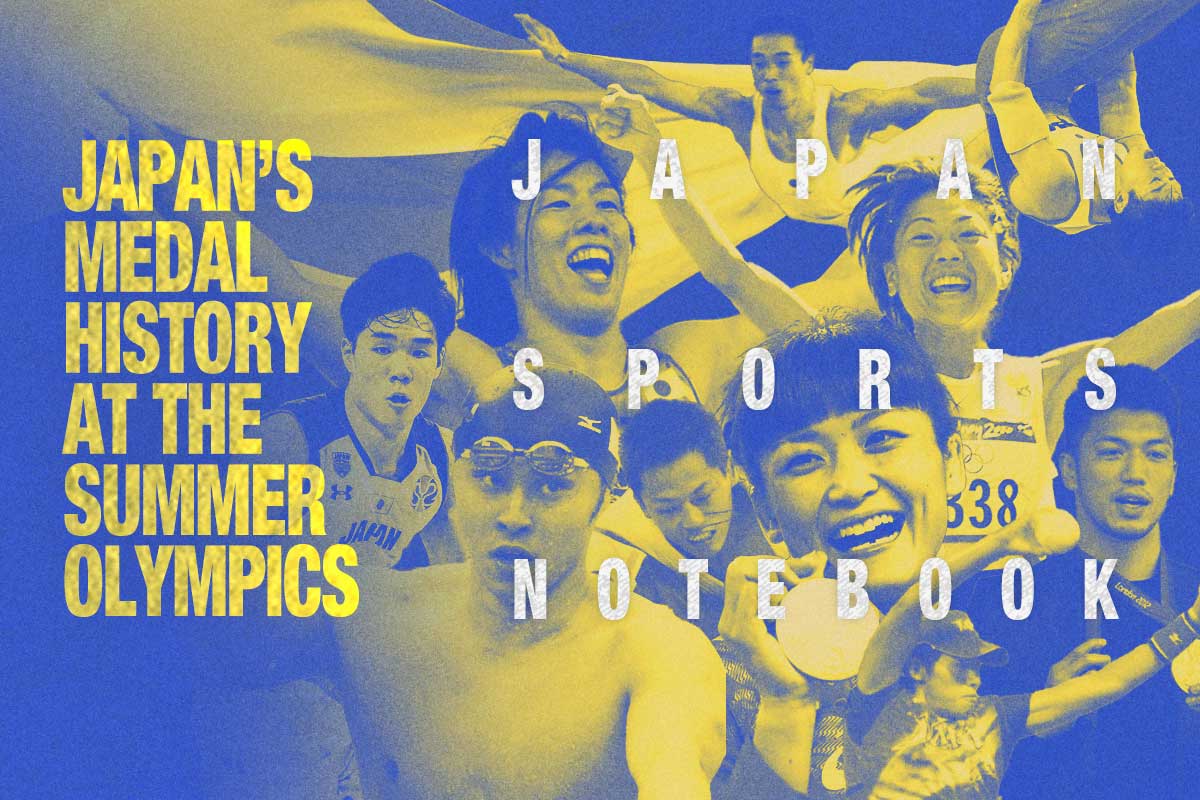
~~
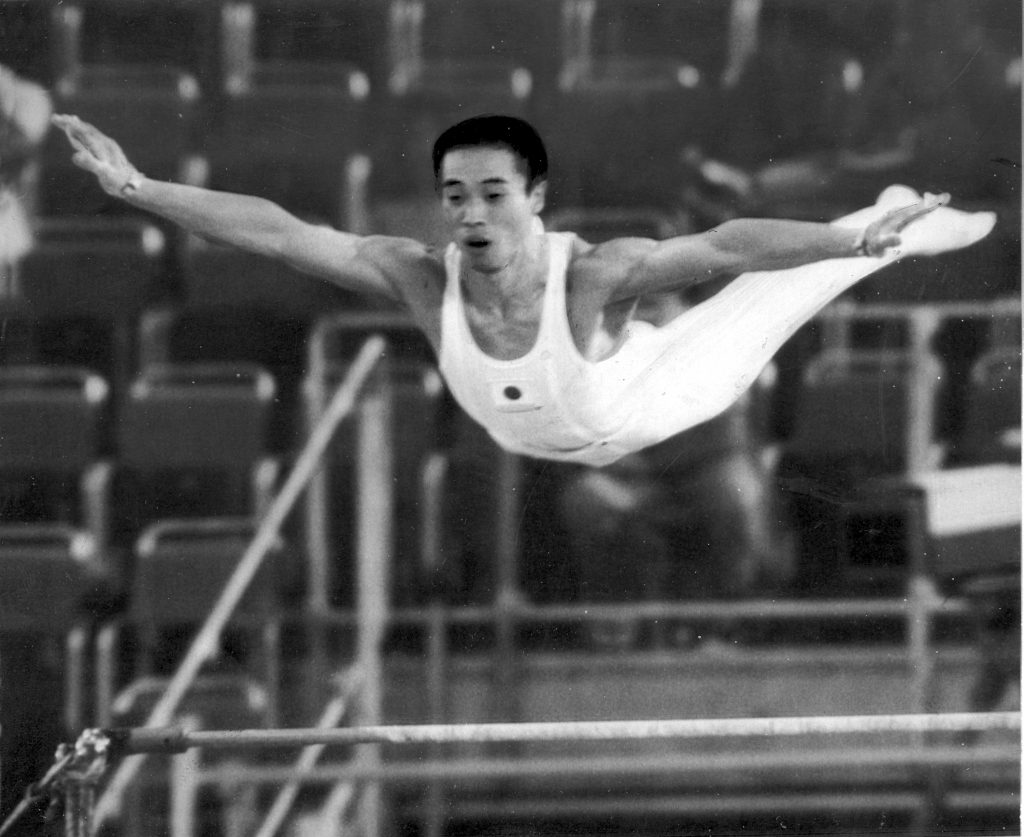
Sawao Kato competes at the 1972 Munich Olympics. Kato won eight gold medals in his legendary Olympic career.
A lot has changed since two athletes represented Japan at the 1912 Stockholm Summer Olympics.
Runners Yahiko Mishima, a track sprinter, and Shizo Kanakuri, a marathon runner, provide the answers to a rather difficult trivia question.
Neither man medaled. They did, however, set the path for Japan to compete on the global stage on a quadrennial basis in every Summer Olympics since, save for the 1948 London Games when the nation wasn't invited to compete, and the 1980 Moscow Games, when it joined a United States-led boycott in protest of the USSR's invasion of Afghanistan in 1979.
Tennis player Ichiya Kumagae (men's singles) and doubles partners Kumagae and Seiichiro Kashio became Japan's first Olympic medalists, receiving silver medals in both competitions at the 1920 Antwerp Games. Japan deployed 15 athletes to Belgium.
Entering the delayed Tokyo Games, Japan has amassed 439 total medals in the Summer Olympics, and four sports account for the majority of them: gymnastics (98 medals), judo (84), swimming (80) and wrestling (69).
Japan's rich Olympic gymnastics tradition is quite remarkable. Exhibit A: The Land of the Rising Sun will surpass a special milestone at the upcoming Tokyo Games ー 100 overall medals in gymnastics.
American swimmer Michael Phelps is No. 1 on the all-time medal chart with 28 (23 gold, three silver and two bronze). He retired after the 2016 Rio de Janeiro Games. Gymnastics great Larisa Latynina, who represented the Soviet Union in 1956, 1960 and '64 on the Olympic stage, is No. 2 with 18 medals (9-5-4).
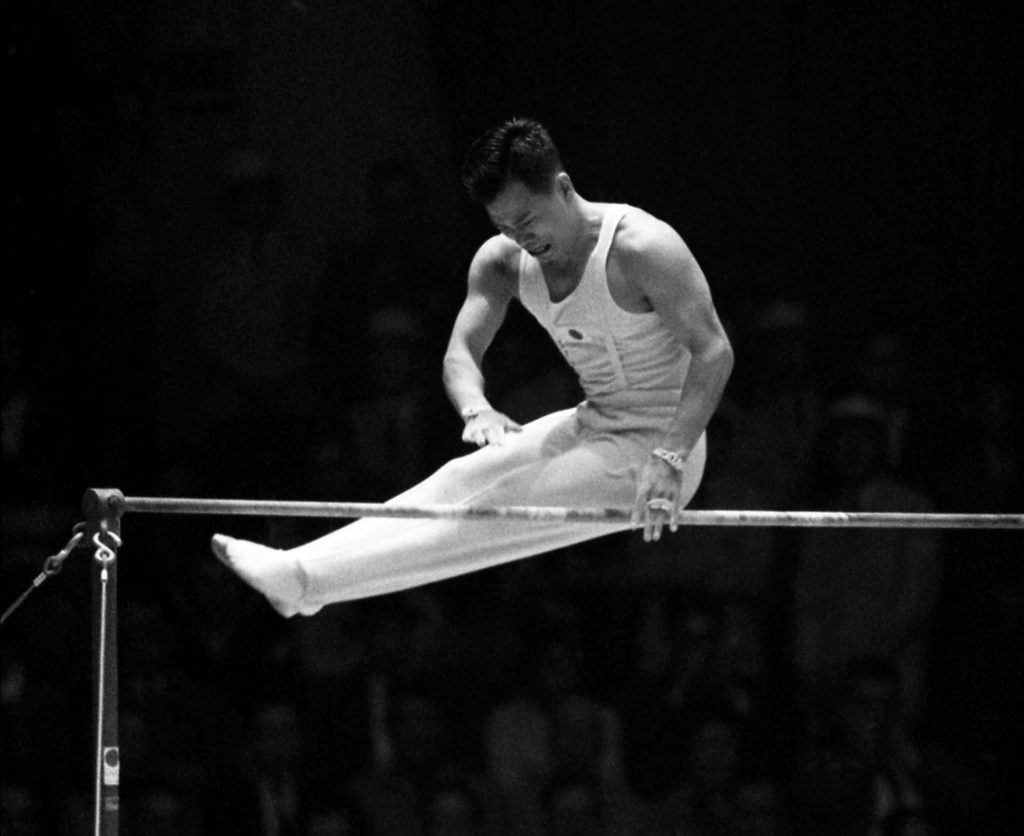
Takashi Ono competes on the horizontal bar at the 1964 Tokyo Olympics.
Among Summer Olympians, Japanese gymnastics legend Takashi Ono is tied for fourth on the overall medal chart with 13, sharing the spot with Soviet gymnast Boris Shakhlin and Italian fencer Edoardo Mangiarotti.
Ono, who turns 90 on July 26, competed at the 1952 Helsinki Games, the 1956 Melbourne Olympics, the 1960 Rome Games and the 1964 Tokyo Olympics. Longevity and versatility helped him haul in five golds, four silvers and four bronze. He never won the individual all-around gold, though. He placed runner-up in his second and third Olympiads. He captured the gold on the horizontal bar in Melbourne, then did it again in Rome. Ono was inducted into the International Gymnastics Hall of Fame in 1998.
During Ono's induction speech, he spoke from the heart.
"Gymnastics is a great sport that expresses beauty of movement, power and elegance, attracting people all over the world," he said. "Through gymnastics, I pray sincerely for world peace and happiness."
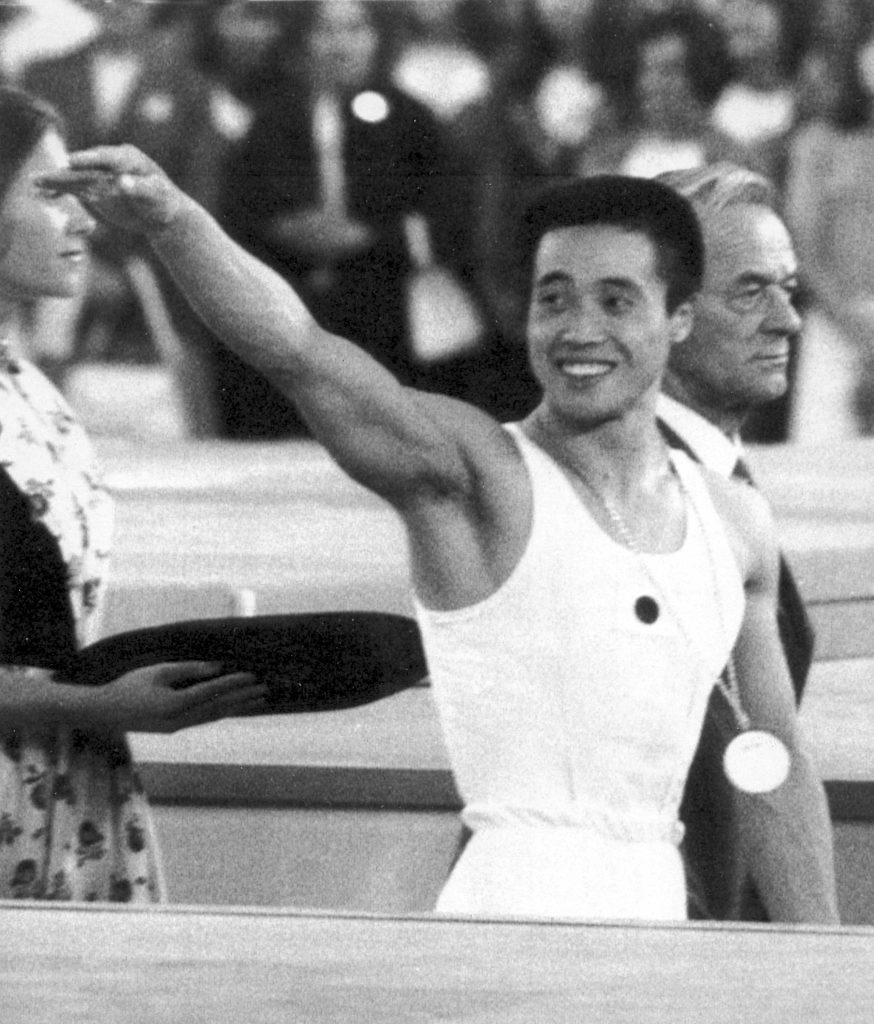
Sawao Kato at the 1972 Munich Games.
Following in Ono's footsteps, another all-time Olympic gymnastics great, Sawao Kato, is on the top-10 chart. Kato debuted at the 1968 Mexico City Games and won his first of back-to-back men's all-around titles, a feat that Kohei Uchimura matched at the 2012 London Games and 2016 Rio de Janeiro Games.
Kato, who is now 74, also experienced the thrill of participating on the Japan men's title-winning teams in '68, 1972 (Munich) and '76 (Montreal). He has a whopping 12 medals (8-3-1) on his resplendent CV. Among Kato's quintet of golds, he beat the competition on the parallel bars in Germany and Canada, and he earned induction into the IGHOF in 2001.
Before examining medal trends and feats among 21st century Japanese medalists, let's take a quick look at the overall medal breakdown (gold-silver-bronze) for Japan's Big Four at the Summer Games.
Gymnastics medal haul: 31-33-34.
Judo: 39-19-26.
Swimming: 22-26-32.
Wrestling: 32-21-16.
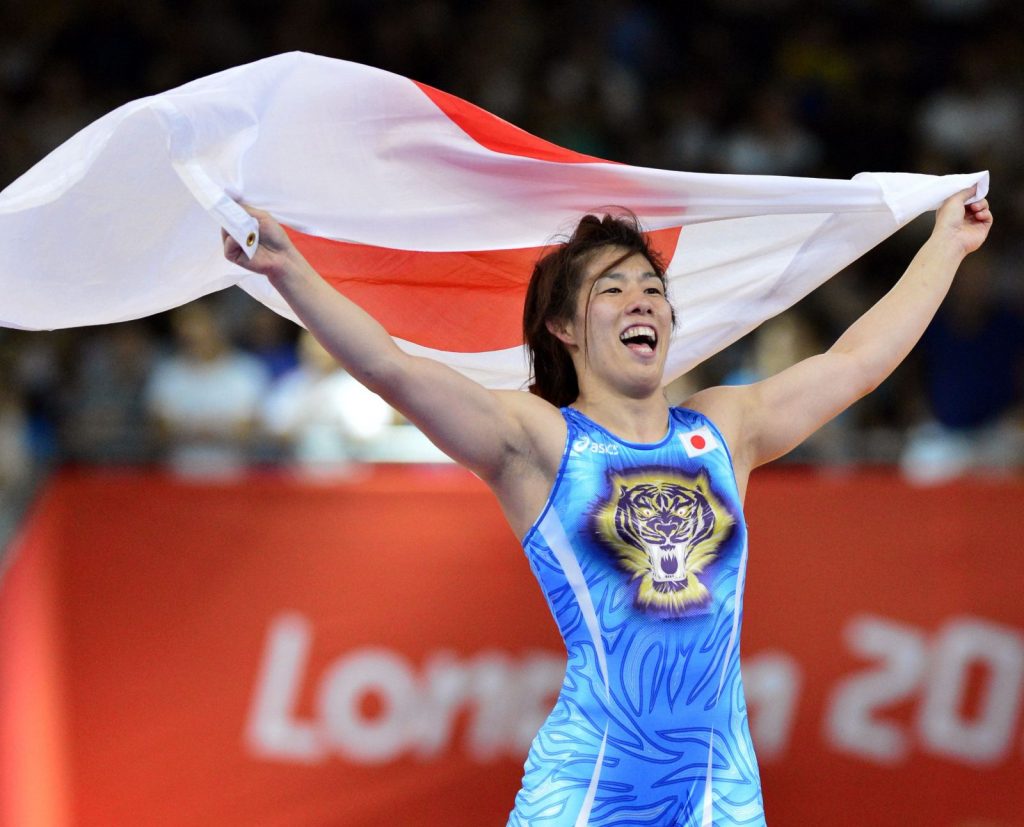
Saori Yoshida 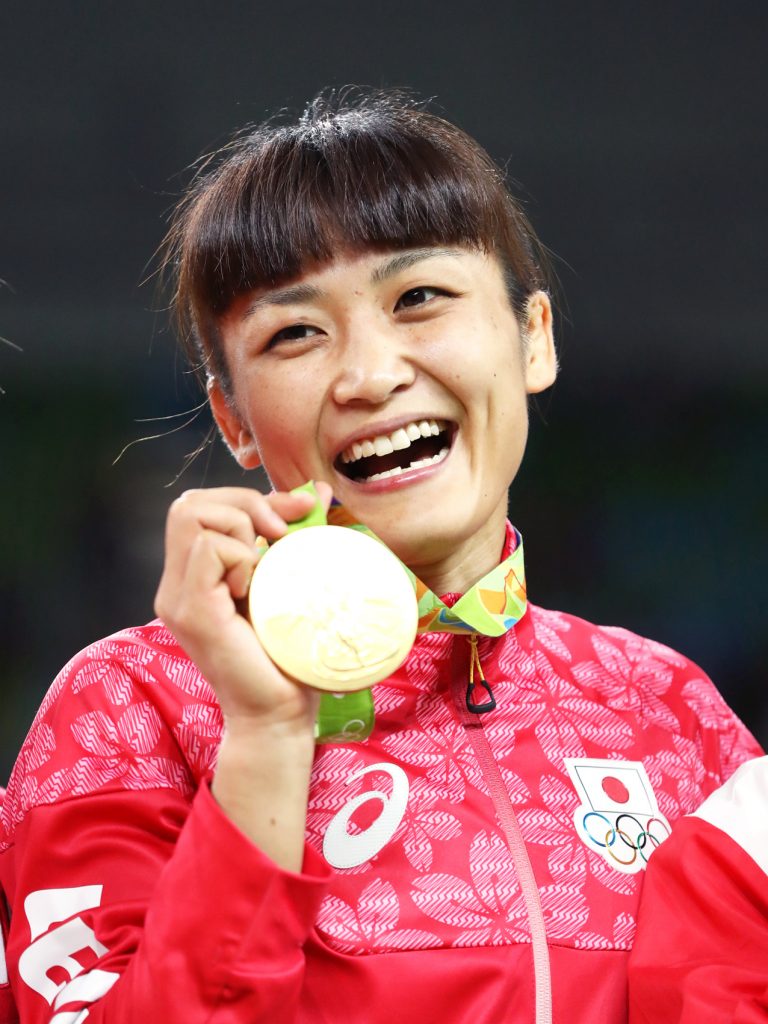
Kaori Icho
21st Century Medals for Japan
In Sydney, Japan collected 18 medals (5-8-5). Judo accounted for eight, including four golds. Swimming medals added up to four more, but no golds.
Japan more than doubled its medal tally at Athens 2004 ー 37 medals (16-9-12). Judo again dominated the top of the list, with eight golds and 10 total medals. Swimming took the No. 2 spot (eight medals, including three golds). Greece's Olympics also marked the debuts of Kaori Icho and Saori Yoshida and a run of sustained excellence in wrestling, and Japan collected six wrestling medals.
In Beijing, the medal count slipped to 25 (9-8-8). Although judo topped the chart, its gold-medal tally slipped from eight to four, but Japanese judoka still hauled in seven medals. Wrestling and swimming shared the No. 2 position with five medals apiece.
Four years later, Japan bounced back by surpassing its 2004 total ー 38 medals (7-14-7). The London experience especially shined the spotlight on Japan's wrestlers (six medals, four golds), judo (seven medals, but just one gold) and swimming (11 medals, zero golds and eight bronze).
The upward trend continued at the 2016 Rio Games ー 41 medals (12-8-21). In Brazil, Japan celebrated Olympic titles in five sports: wrestling, judo, swimming, gymnastics and badminton. Badminton women's doubles partners Misaki Matsutomo and Ayaka Takahashi gave the nation its first title in the sport.
Judo (3-1-8), wrestling (4-3-0) and swimming (2-2-3) combined for more than 63% of Japan's Rio medals.
Japan's Most Successful 21st Century Olympians
Freestyle wrestler Kaori Icho stands alone atop Mt. Olympus in terms of most consecutive Olympic titles by a female in an individual sport.
Icho became the first woman to win an event in four straight Olympics, with 63-kg titles in 2004 (Athens), 2008 (Beijing) and 2012 (London) and at 58 kg in 2016 (Rio). The national heroes joined men's bantamweight dynamo Yojiro Uetake (1964, 1968) as repeat winners in freestyle wrestling. (Peruse this page for a comprehensive look at Japan's medal history in the discipline.)
Since the first modern Olympics were held in 1896 in Greece, only five men have won an individual event in four straight Summer Games: Phelps, Carl Lewis (track and field ー long jump), Al Oerter (track and field ー discus), Ben Ainslie (sailing) and Paul Elvstrom (sailing).
On a similar note, Tadahiro Nomura, whose Olympic glory began at the 1996 Atlanta Games, became the first judoka to claim three consecutive gold medals. He defended his under-60-kg division title in 2000 in Sydney, and again in Athens.
Nomura had lofty aspirations defined by his upbringing.
“I started judo at a young age, when I was just three years old and I grew up within a judo family," he said in a story about his illustrious career on the International Judo Federation website. "As a child I was not strong, but when I arrived at my first Olympic Games, in Atlanta, I was 21, almost 22 and I was full of energy.
"My first Olympic gold changed my life and especially in judo, because once I became Olympic champion, everybody started to look at me and to study me. I had to work harder to remain on top and that was my first definable motivation."
Japan's Top Medalists in 21st Century
Kitajima, the son of a Tokyo butcher, rose to prominence with 100- and 200-meter men's breaststroke titles in Athens, then repeated the fantastic feat in Beijing. He and "King Kohei" Uchimura have accrued the most medals of any Japanese Olympian in the 21st century. Both men have seven medals.
Kitajima, who made his Summer Games debut in 2000, retired in April 2016.
Uchimura is set to compete in his fourth Olympiad this summer.
In repeating as 100-meter champ in the Chinese capital on August 11, 2008, he broke the world record (58.91 seconds) and became the first man to win the event in successive Olympiads.
“It was perfect. It was the ideal race. I’ve been looking forward to these Olympics for so long,” Kitajima told reporters after the race.
Three days later, the "Frog King" did it again at the Water Cube, adding to his Olympic legacy with another 200-meter title.
In addition to his impressive gold-medal haul, Kitajima helped Japan nab the bronze in the 4x100 medley relay twice (Athens, Beijing) and then a silver in the same race in (London, his Olympic swan song).
Uchimura's medal haul includes three golds and four silvers, including as the all-around runner-up in Beijing , where Japan finished second to China in the team event. Four years later, the six-time all-around world champ's overall wizardry was on full display. Watch highlights of the 2012 London Olympic all-around competition here.
King Kohei was the top male gymnast in the world at the Rio Games, with the individual all-around title and team crown as evidence.
RELATED:
[JAPAN SPORTS NOTEBOOK] 'King Kohei' Uchimura's Fourth Olympics Adds Drama to Tokyo Games
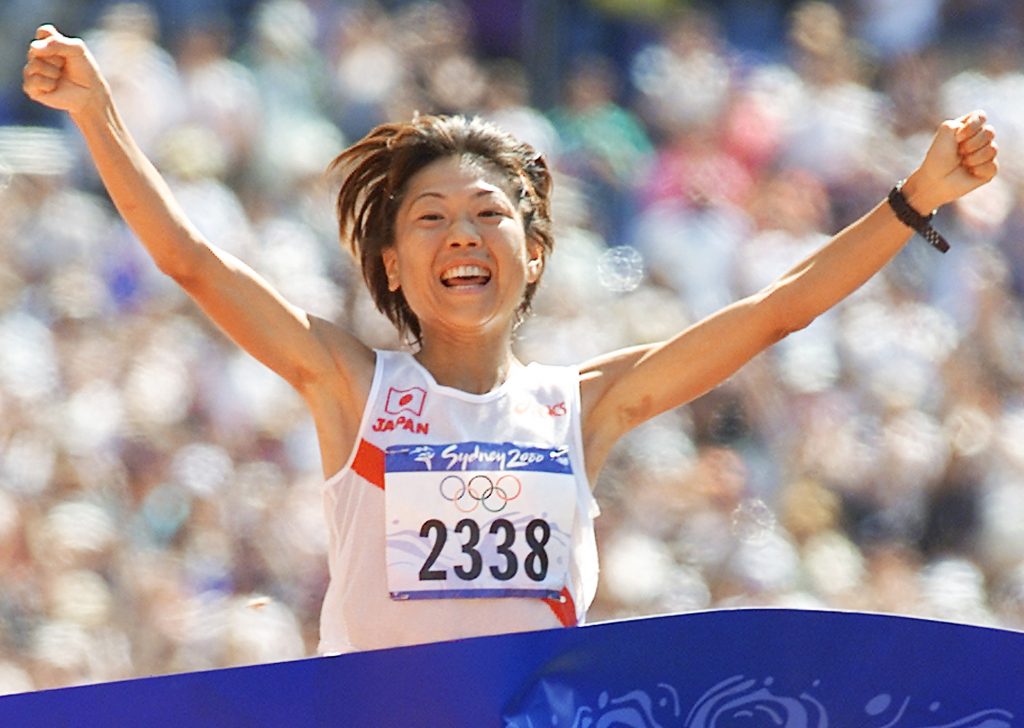
Naoko Takahashi wins the women's marathon with an Olympic record time of 2 hours, 23 minutes, 14 seconds on September 24, 2000, in Sydney. (Doug Mills/AP)
Women's Marathon Runners Thrilled a Nation
Contributing immensely to the popularity of marathon running as a sport to view on TV and as a participatory activity, Naoko Takahashi and Mizuki Noguchi deserve a lot of credit. (As a trailblazing figure, Takahashi set the gold standard.)
The two Japanese women defeated everyone in their path at the 2000 Sydney Games and 2004 Athens Olympics, respectively.
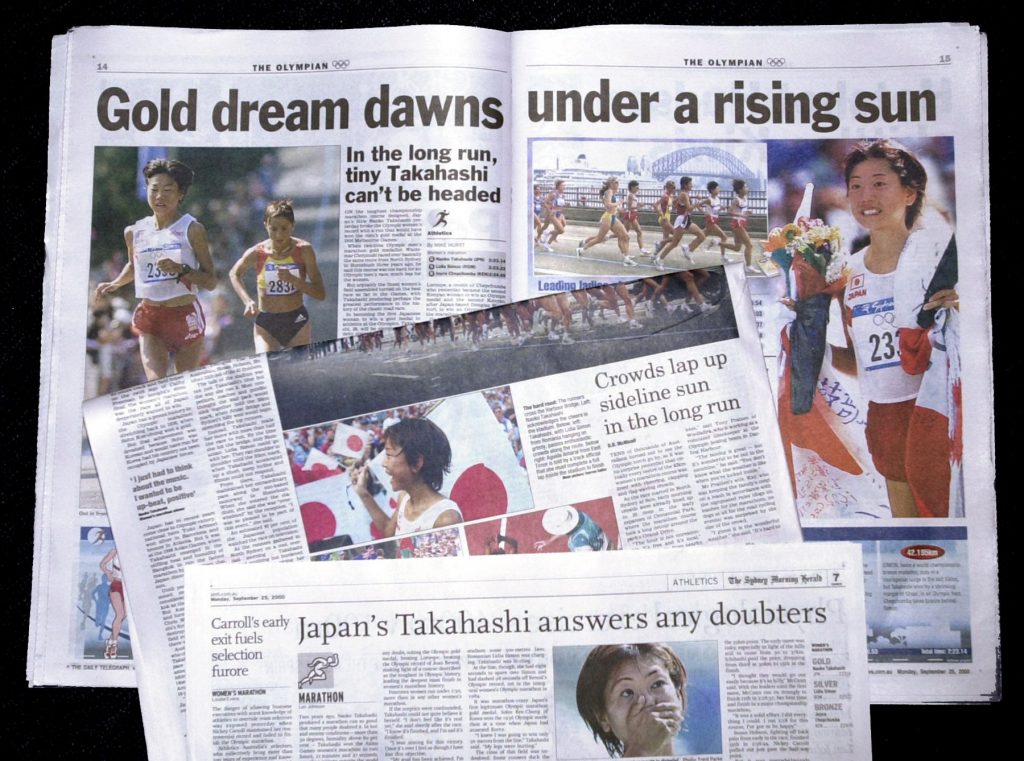
Massive media coverage in Australia.
Twenty years after her date with destiny, Takahashi donated her winning bib to the World Athletics Heritage Collection.
To this day, she hopes to be an inspirational figure for athletes and people in all walks of life.
“I am happy to see my Sydney bib join the Heritage collection,” Takahashi said in December 2020. “I would like the bib’s donation to help increase interest in the marathon, and the challenge and beauty of distance running. It might also help motivate more people to take up running for fitness and fun, or perhaps even competitively, picturing themselves in my shoes.”
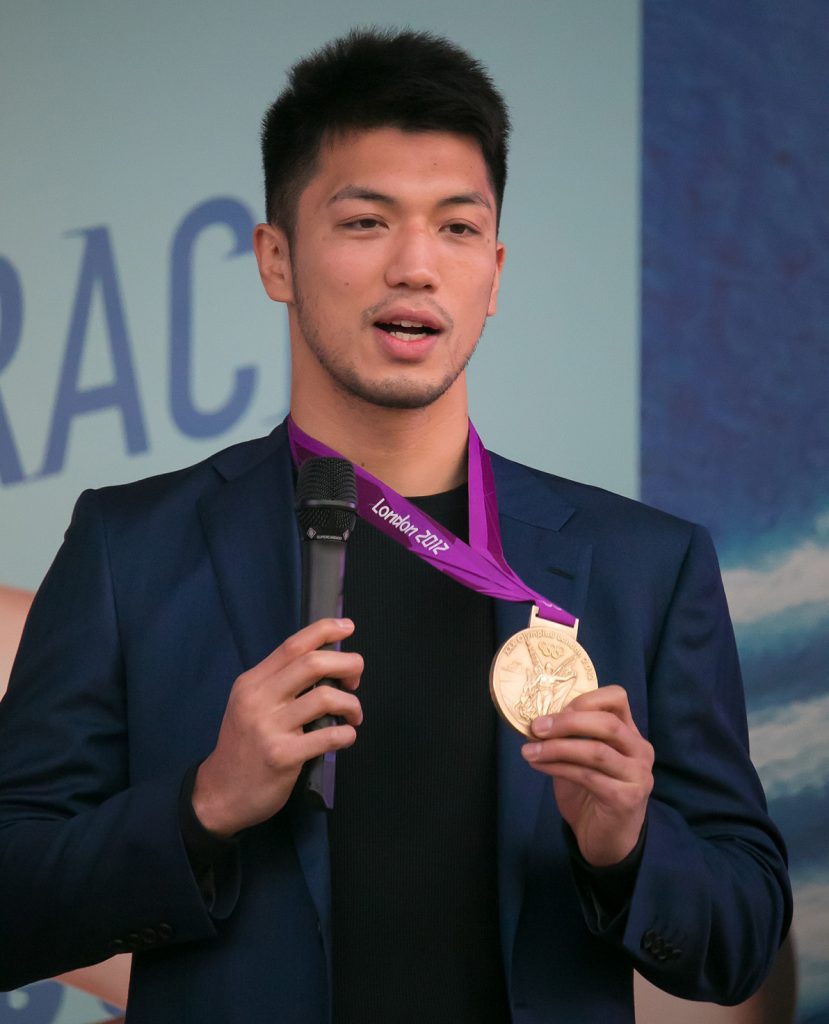
Ryota Murata in 2017, five years after winning the middleweight title at the London Games. (Ogiyoshisan/CC BY-SA 4.0/via Wikimedia Commons)
Japan's First Boxing Gold Medalist in Decades
Nara native Ryota Murata ended Japan's long gold-medal drought in Olympic boxing at the 2012 London Games.
The gifted fighter vanquished all foes in his path en route to the middleweight title at Exhibition Centre London, finishing off his championship quest by outpointing Brazil's Esquiva Falcao 14-13.
Murata became Japan's first Olympic boxing champion since Takao Sakurai nabbed the bantamweight gold in 1964.
Since then, he's gone on to earn further fame and recognition as a pro fighter, winning the WBA middleweight title.
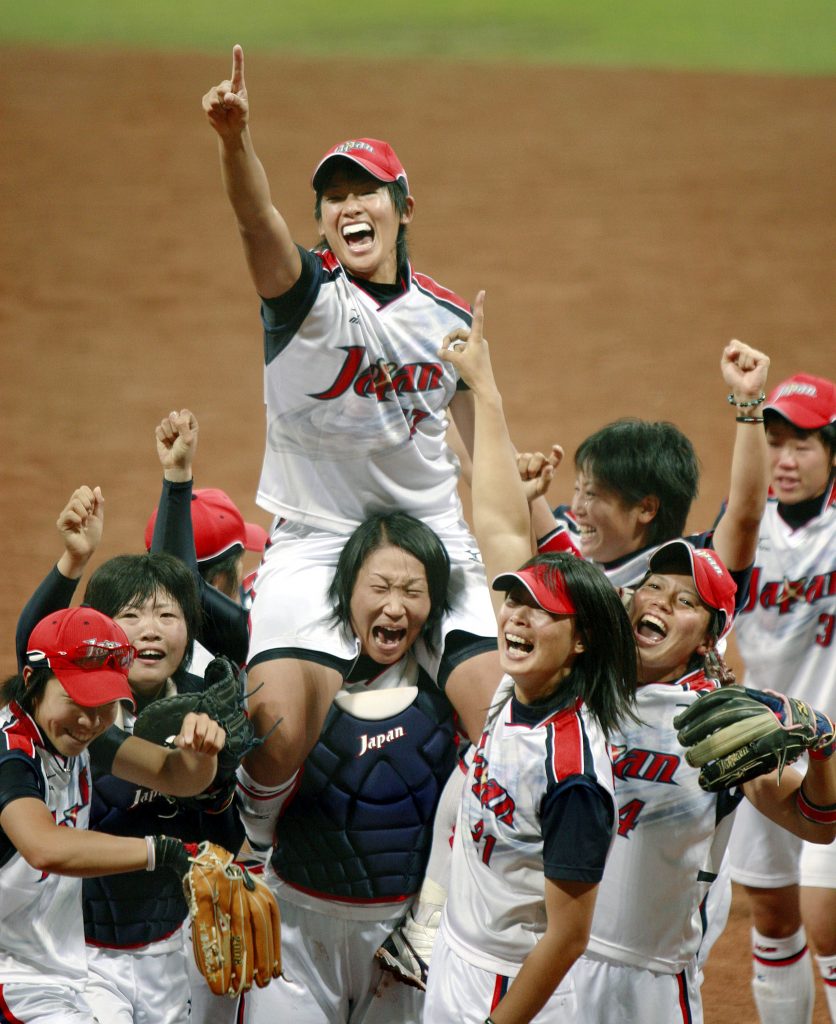
The 2008 Olympic softball champions.
Softball Team Grabs Title, Then a Forced Hiatus, and Now Another Shot at Glory
Team Japan shocked the world by upsetting the powerhouse United States softball team in the 2008 Beijing final.
Entering the tournament in China, the U.S. squad had won the three previous titles. Softball made its Olympic debut at the 1996 Atlanta Games.
The Americans were the overwhelming favorites to four-peat in Beijing, and then Japan pitcher Yukiko Ueno and her teammates slammed the door on Team USA's wishes.
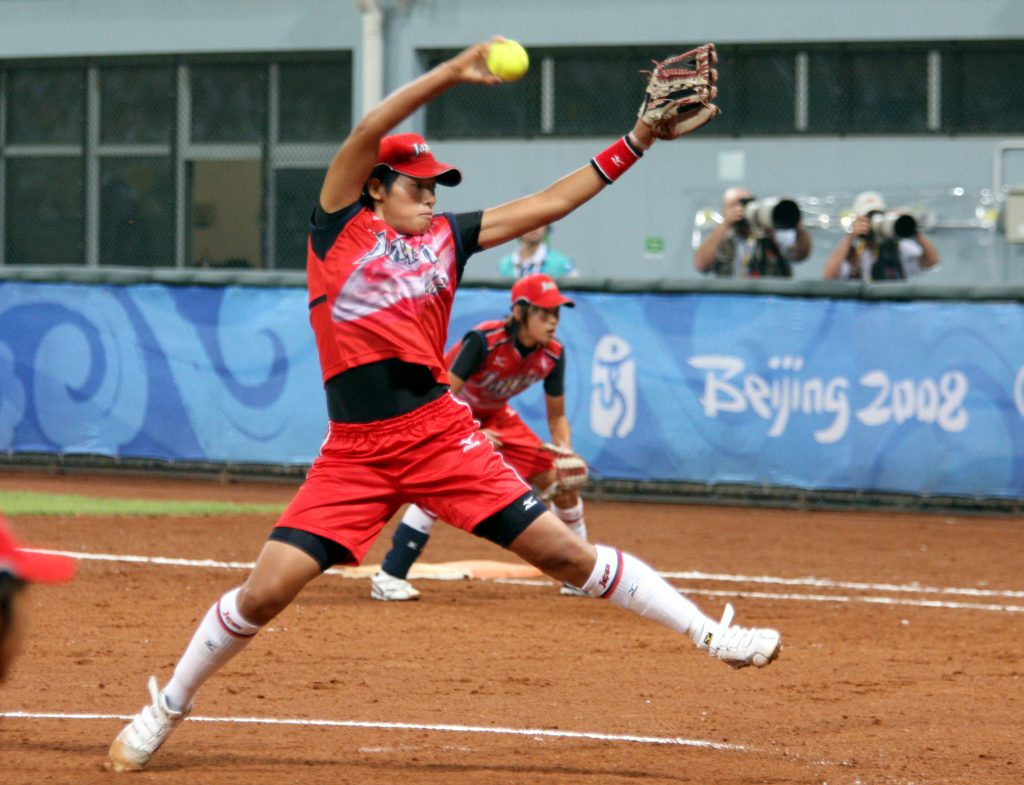
Yukiko Ueno
Reporting from Beijing, my game story began this way: "This was on-field drama at its best: workhorse pitcher Yukiko Ueno playing the starring role, Ayumi Karino and Eri Yamada shining in their supporting roles and Japan destroying the U.S. softball team’s aura of invincibility."
Ueno settled down after a bases-loaded jam in the first inning. She pitched a complete game in Japan's 3-1 victory that ended the Americans' 22-game Olympic win streak.
Softball, like baseball, was dropped from the Olympic program after the Beijing Games. It was added back to the menu for the Tokyo Games, and then both are off the list for the 2024 Paris Olympics.
Ueno is back in the spotlight now as the veteran leader of the national team, which seeks to replicate its performance from 13 years ago.
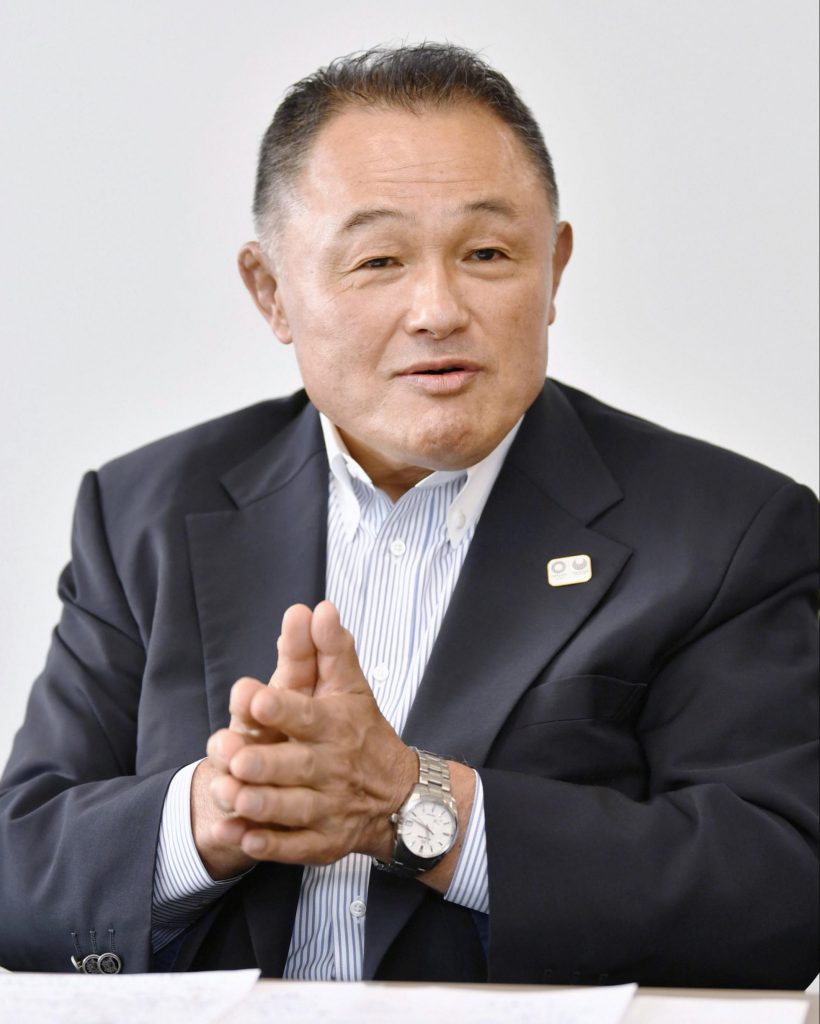
Yasuhiro Yamashita
Olympic Governance
Yamashita Re-elected as JOC President
Yasuhiro Yamashita was elected to a second term as Japanese Olympic Committee president on June 25.
The post is for a two-year term.
Looking ahead as the JOC's chief leader, the 1984 Olympic judo champion (open category) acknowledged he's focused on the Tokyo Games.
"We as the JOC will cooperate with the Games organizers until the end and handle matters accordingly," the 64-year-old Yamashita was quoted as saying by Kyodo News, noting the challenges of the global pandemic.
"I hope the athletes fulfill their potential holding the pride and responsibility of representing Japan in their hearts. We'll do all we can to support them."

Melbourne United and Japan national team guard Yudai Baba (FIBA.Basketball)
Basketball
Baba, Melbourne United Win NBL Title
Guard Yudai Baba's slam dunk with 3 seconds remaining was the final basket of Melbourne United's 81-76, title-clinching victory over the Perth Wildcats in the Australian NBL's Grand Final on Friday, June 25.
Melbourne United, which finished with a league-best 28-8 record in the regular season, swept the best-of-five series, including victories in the first two games in Perth.
Due to COVID-19 restrictions in Melbourne, the NBL champs were forced to play 11 straight away contests in recent weeks before returning home for Game 3 on Friday.
Baba, a key backup for coach Dean Vickerman's squad throughout the season, contributed 11 points, two rebounds and one assist in 23-plus minutes. Four United players scored in double figures as the club won its sixth overall NBL title and second in the past four seasons.
The 25-year-old Baba averaged 8.0 points, 2.3 rebounds and 1.2 assists in 30 games during the regular season.
The Toyama native, who began his pro career with the B. League's Alvark Tokyo in 2017, has now played on three championship teams. The Alvark captured back-to-back titles in Baba's first two seasons, and he was named Finals MVP in 2018-19.
RELATED:
BASKETBALL | Yudai Baba Signs Deal with NBL’s Melbourne United
[ODDS and EVENS] Yudai Baba Plays Waiting Game as Melbourne United Copes With COVID-19 Crisis
Alvark Continue Roster Overhaul for 2021-22 Season
The Alvark have been retooling their roster for the upcoming season with the recent signing of Spaniard Sebastian Saiz, the 2021 B. League Finals MVP, and frontcourt standout Ryan Rossiter.
Rossiter, who had spent the past eight seasons with the Utsunomiya Brex (the franchise was formerly known as the Tochigi Brex), officially joined the Alvark on Monday, June 21. One of the league's top all-around players, Rossiter could be the X-factor for the club in the upcoming season. As a naturalized Japanese, he doesn't count against the league's on-the-court foreign player quota (two per team).
In the same week, the Alvark finalized a deal with veteran point guard Jordan Taylor, a University of Wisconsin alum. His pro career has included stints with teams in Italy, Israel, Turkey and Germany.
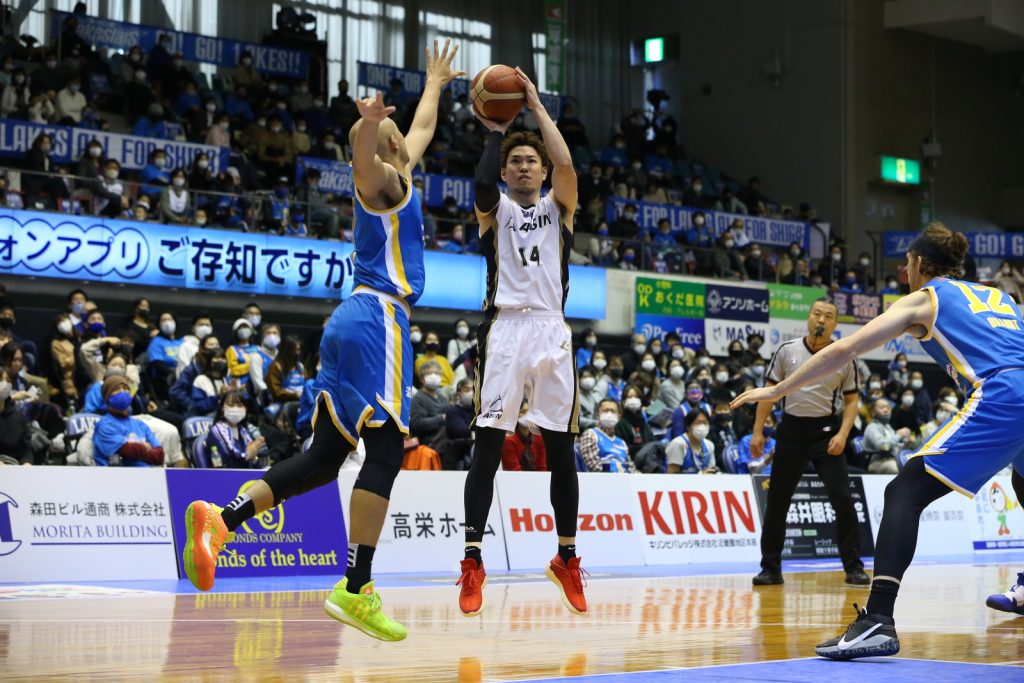
Sharpshooter Kosuke Kanamaru played eight seasons for the SeaHorses Mikawa. (B. League)
Kanamaru Leaves SeaHorses
Veteran small forward Kosuke Kanamaru, the 2020-21 B. League MVP, has decided to leave the SeaHorses Mikawa after eight seasons, the club announced on Friday, June 25.
The Fukuoka native scored 16.8 points per game this past season.
"I am really grateful to the team that has helped me since the Aisin era and has grown me to this point," the 32-year-old said in a statement. "I learned a lot not only about basketball but also about things outside the court.
"For eight years, it was fun and sometimes painful. But that made me grow up to this point, and if it weren't for the SeaHorses, I might not have been able to achieve this level of results."
Baseball
Pacific League Title Race Wide Open
Five of the six Pacific League teams are within four games of each other in the standings through Saturday, June 26.
The Tohoku Rakuten Eagles and Orix Buffales own identical records (35-29-9), followed by the four-time reigning NPB champion Fukuoka SoftBank Hawks (31-29-14), Saitama Seibu Lions (29-29-14) and the Chiba Lotte Marines (30-31-10). The Hokkaido Nippon Ham Fighters (24-38-8) are the only PL team out of the playoff chase.
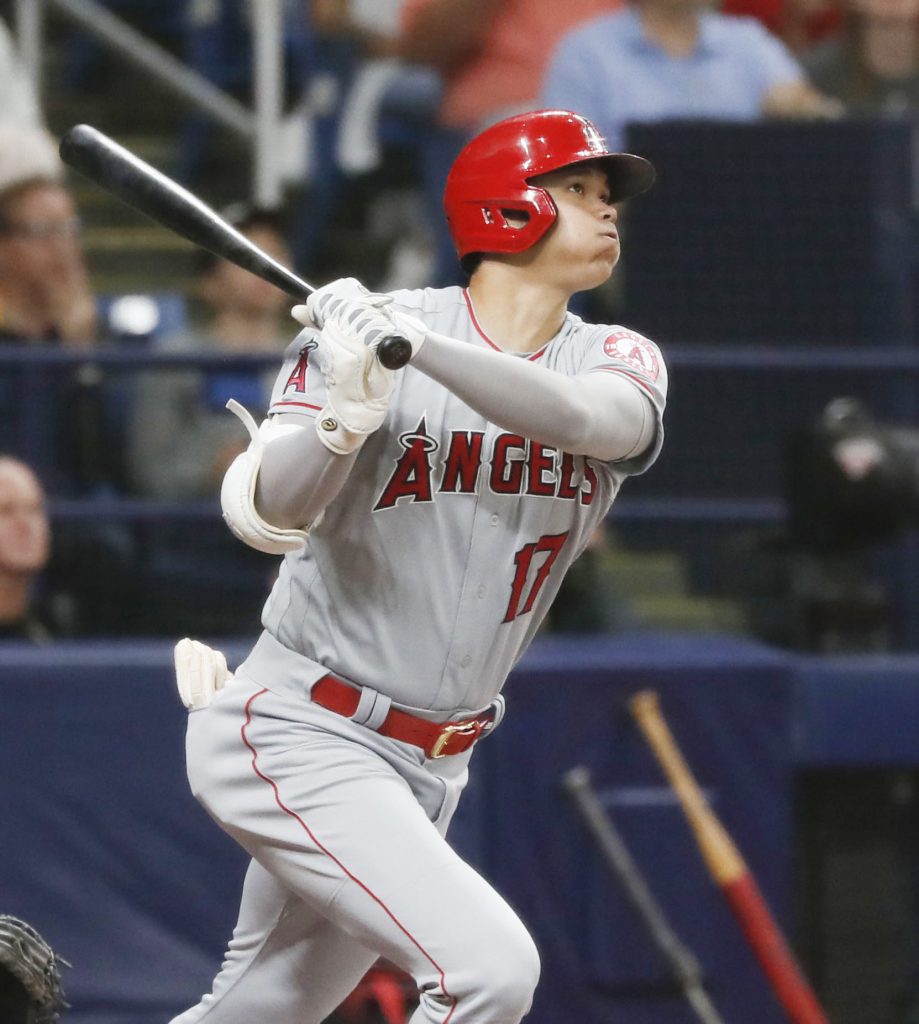
Shohei Ohtani watches the flight of his solo home run in the first inning on June 25.
Ohtani Belts First Leadoff Homer of MLB Career
Los Angeles Angels designated hitter Shohei Ohtani hit a game-opening home run against the Tampa Bay Rays on June 25.
It was Ohtani's first leadoff homer in his four seasons with the Angels.
Hiis 24th homer of the season, a blast to right-center, ricocheted off the catwalk above the scoreboard.
The Rays beat the Angels 4-3, sending LA to its fourth straight loss.
Quotes of the Week
"Being able to play against the Lions today will be a treasured moment in my rugby career. It was a great experience."
ーThe Brave Blossoms' Kazuki Himeno, reflecting on the Japan rugby national team's match against the British & Irish Lions on June 26 in Edinburgh, Scotland. The Brave Blossoms lost 28-10.
"I was betting my fate on this race. I was lacking form at the start of spring but I'm glad to have picked up. There weren't many races I came first, so I'm really happy."
ーSprinter Shuhei Tada on winning the men's 100 meters in 10.15 seconds at the national championships on June 25 in Osaka, Kyodo News reported. Tada punched his ticket to the Olympics for the first time.
Editor’s note: Interested in submitting a news item for possible inclusion in the Japan Sports Notebook? Send an email with relevant information to e.odeven@japan-forward.com, or JAPAN Forward’s comment’s page or Facebook page and look for future editions of Japan Sports Notebook on our website.
Author: Ed Odeven
Follow Ed on JAPAN Forward's [Japan Sports Notebook] here on Sundays, in [Odds and Evens] here during the week, and Twitter @ed_odeven.

Nagoya Basho Tournament Records
| Day | Opponent | Result |
|---|
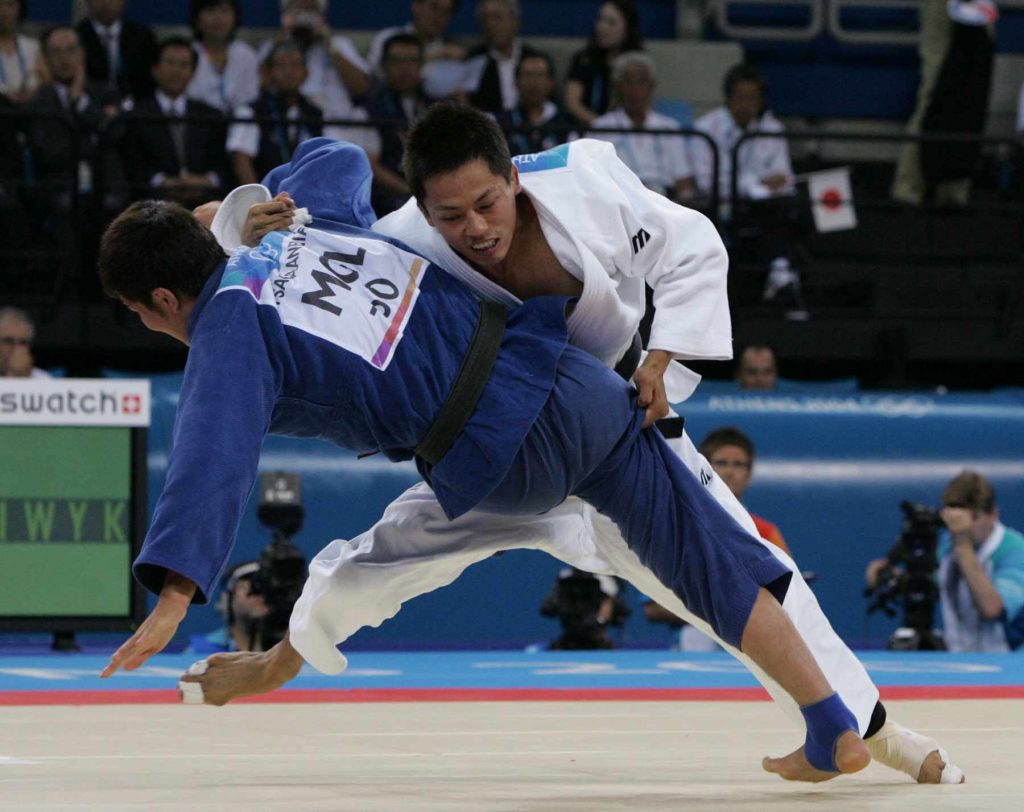
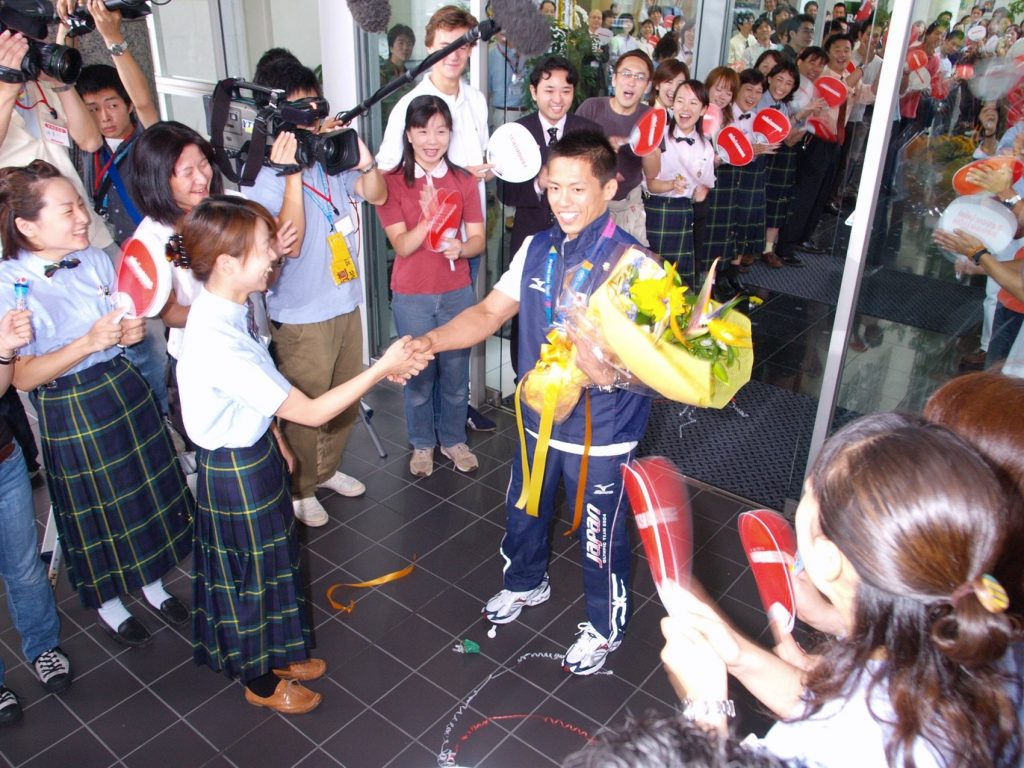
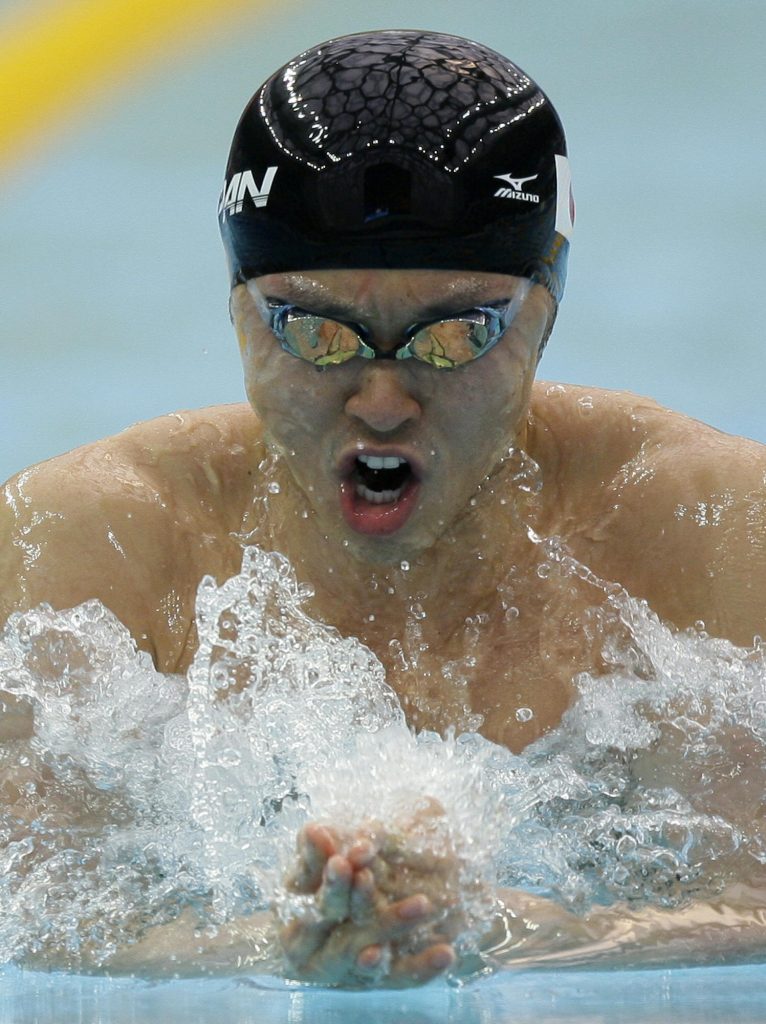
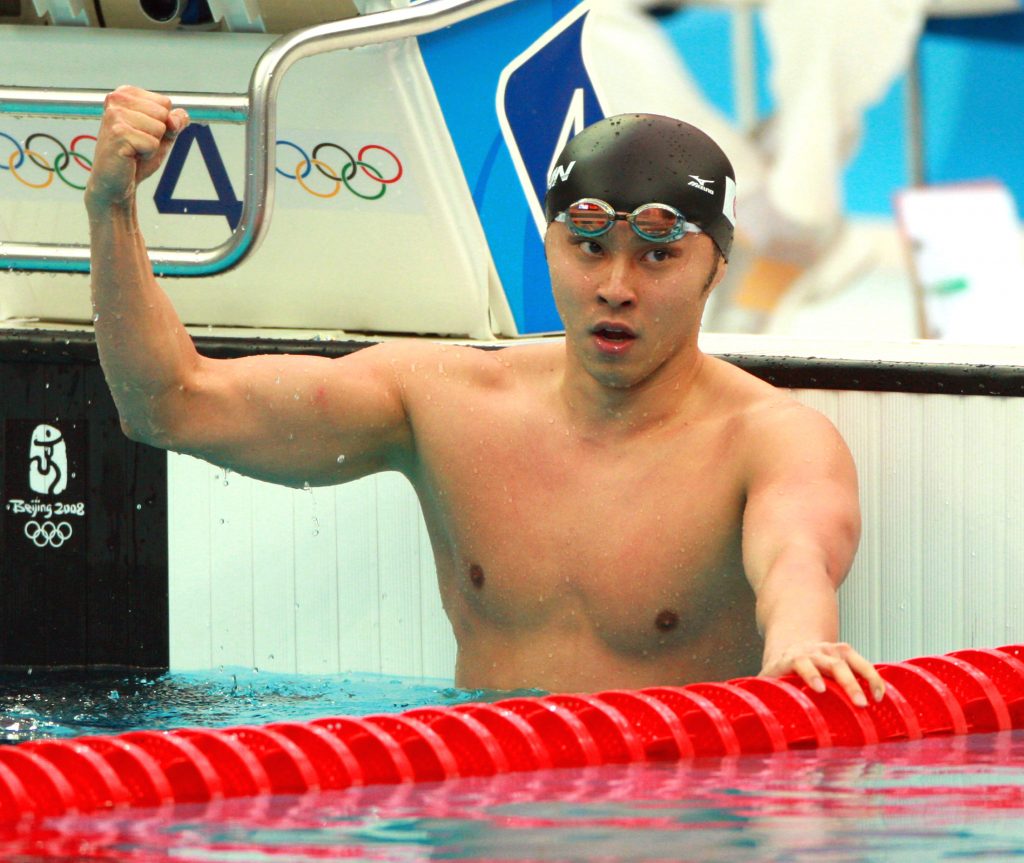
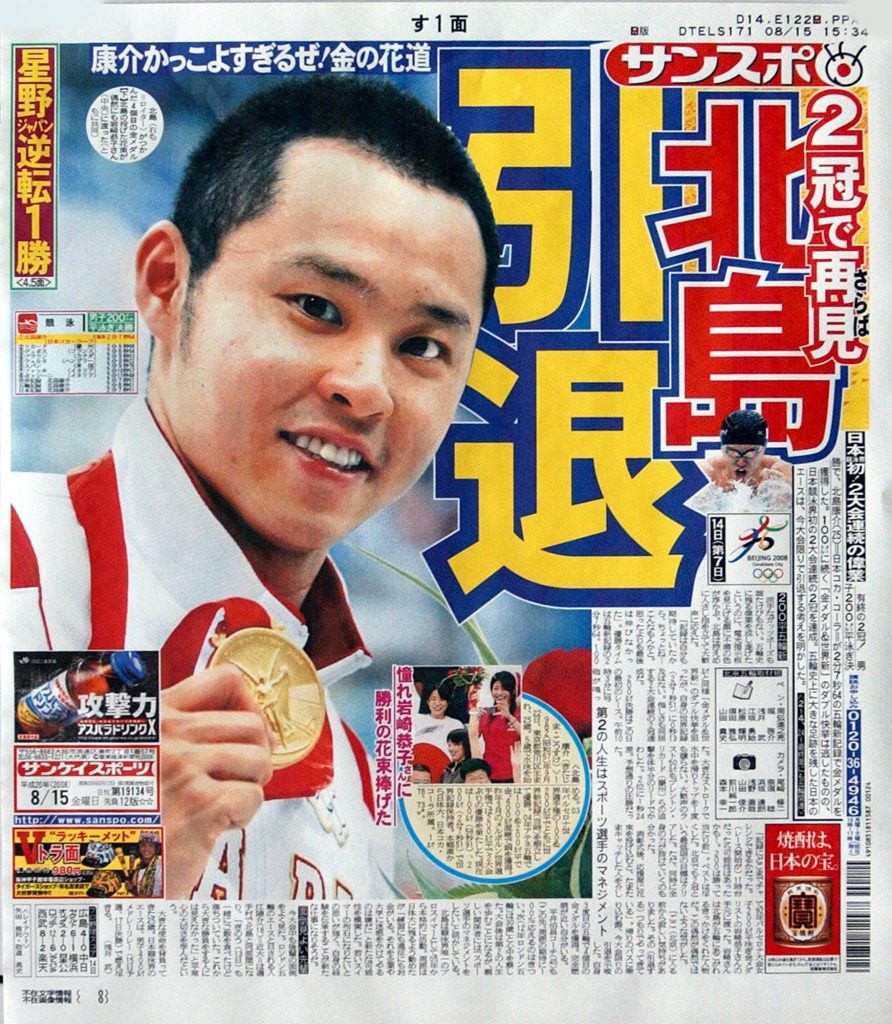
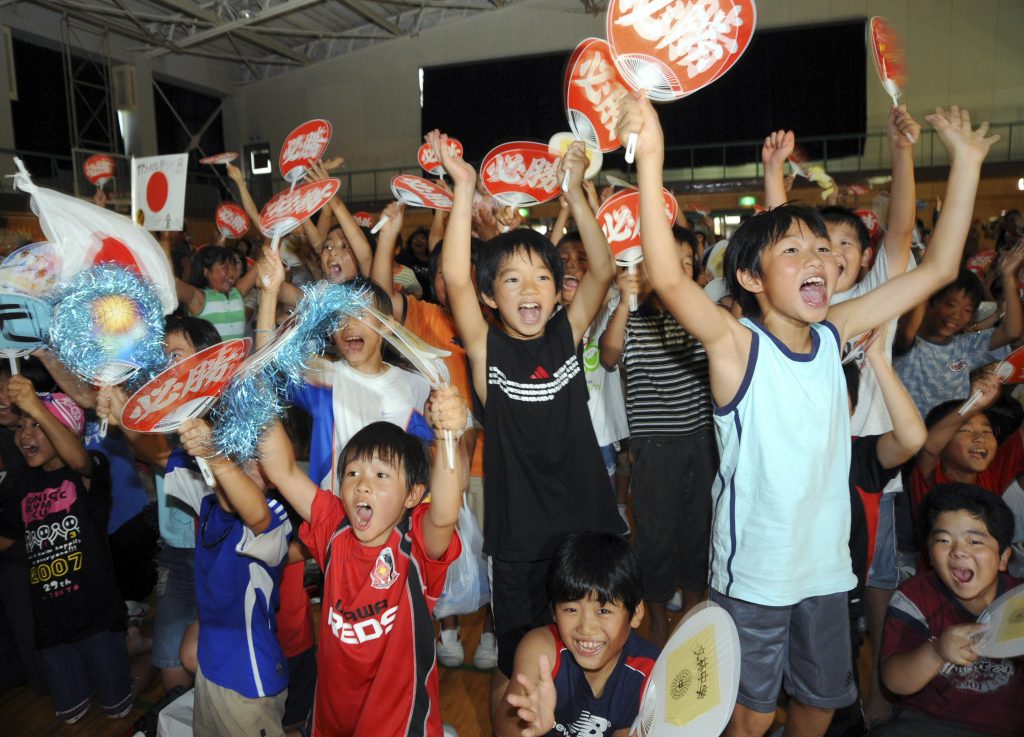
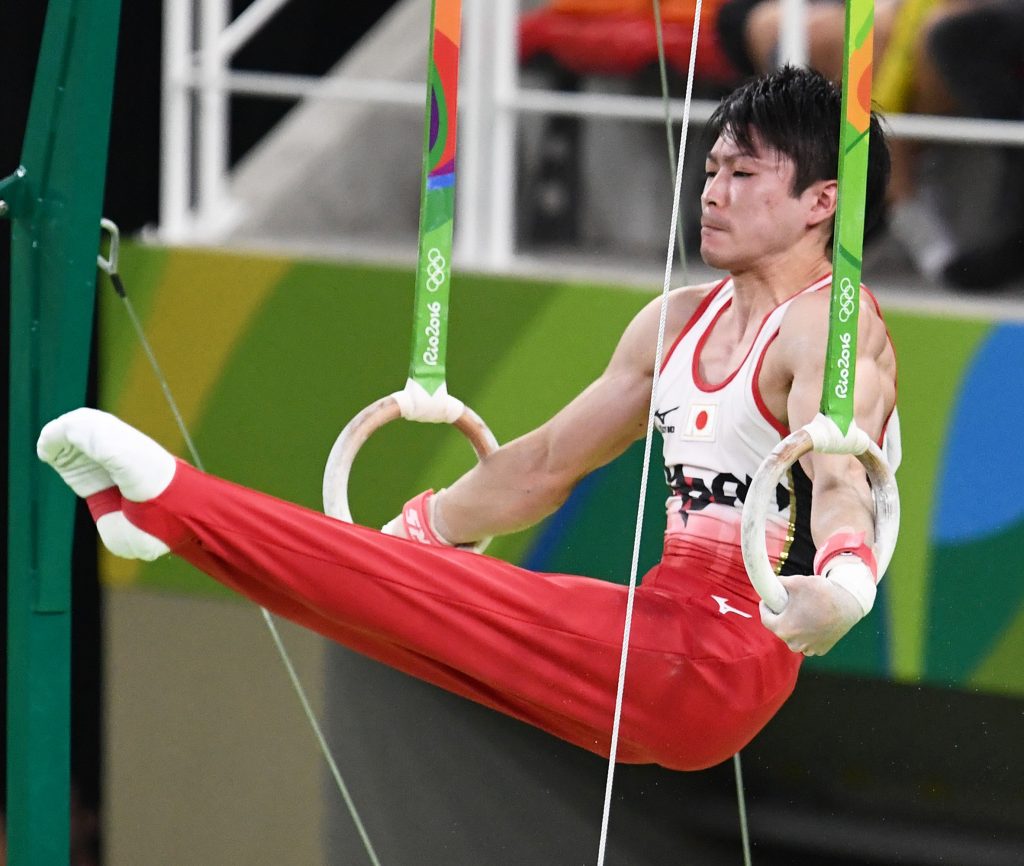
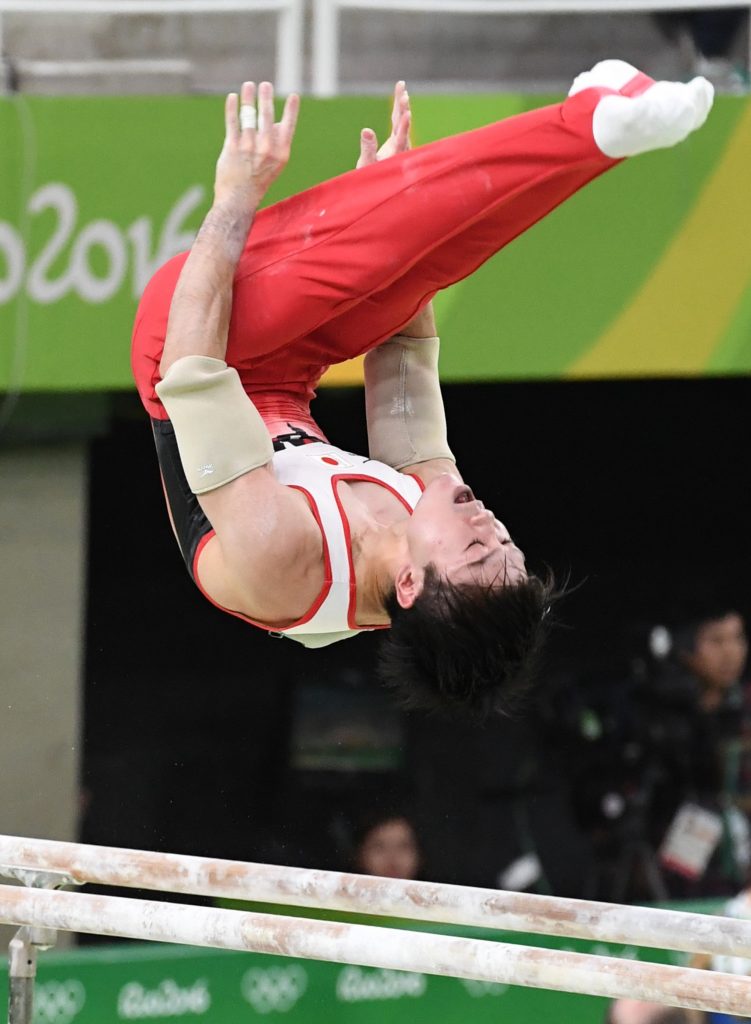














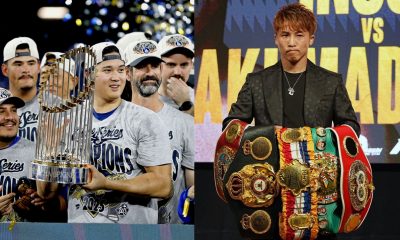
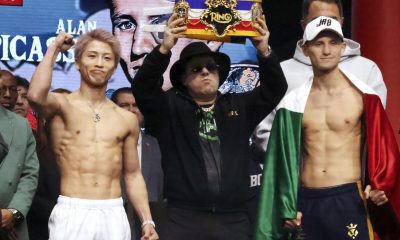
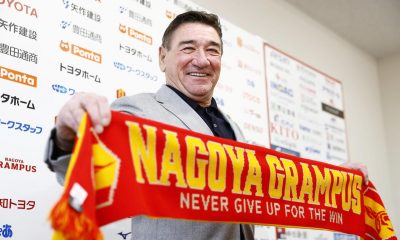

You must be logged in to post a comment Login